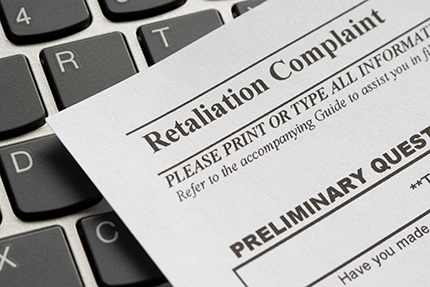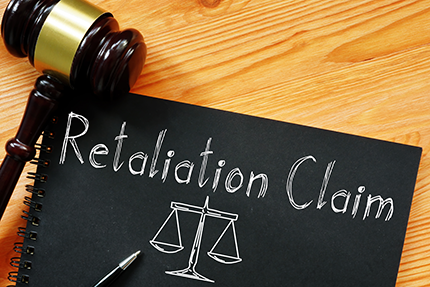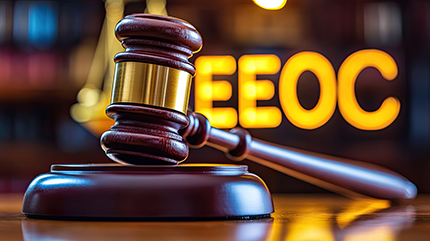
Understanding Employee Retaliation Claims and How Employers Can Mitigate Risks

Ms. Pomerantz is the CEO of TPG HR Services USA and has over 35 years of Human Resources practices experience. She holds a Master’s in Human Resource Management (MHRM) and is a certified Senior Professional in Human Resources (SPHR) and SHRM Senior Certified Professional (SHRM-SCP). Mary also serves as CEO of Mary Pomerantz Advertising, one of the largest recruitment advertising agencies in the country. Earlier in her career, she was president of the 17th largest staffing firm in the country.

Employee retaliation claims in the workplace against employers continue to rise every year. The U.S. Equal Employment Opportunity Commission (EEOC) has stated that retaliation claims represent a significant portion of all the charges filed every year with the agency. Small and midsize business owners need to implement or update their HR policies and procedures to reduce and hopefully eliminate the number of employee retaliation claims filed against their companies. Business owners need to accomplish all this while also making sure to protect employee trust to help foster a healthier organizational culture.
This blog will provide a comprehensive overview of retaliation claims, covering their definition, legal implications, and actionable strategies for mitigation. By the end, you’ll be equipped with HR expert-backed guidance to manage complaints effectively and reduce risks associated with retaliation.

What Are Retaliation Claims?
A retaliation claim arises when an employer takes adverse action against an employee because they engaged in a “protected activity.” Protected activities can include reporting workplace discrimination, harassment, or other unlawful practices, as well as participating in investigations related to such complaints.
- Protected Activity
Employees are safeguarded under various federal and state laws when they file complaints or assist in investigations regarding illegal actions within the workplace.
- Adverse Employment Action
This includes demotions, terminations, pay cuts, or any other significant negative change in the terms of employment
- Causal Connection
There must be a link between the adverse action and the employee’s protected activity.
According to the EEOC, nearly 45% of all charges filed include allegations of retaliation, making it one of the most common complaints in workplaces today. Courts often view such claims favorably toward employees, due to the broad legal interpretations and high credibility of documented protected activities.

Legal Implications of Retaliation Claims
Most major employment statutes, such as Title VII of the Civil Rights Act, the Americans with Disabilities Act (ADA), and the Fair Labor Standards Act (FLSA), strictly prohibit retaliation. Employers found guilty of retaliation may face severe consequences:
- Financial Penalties
This can include compensation for lost wages, back pay, or punitive damages.
- Reputational Damage
Legal disputes can harm an organization’s reputation among employees and stakeholders.
- Loss of Talent
A lack of trust within the workforce may push valuable employees to leave.
While retaliation claims may stem from genuine grievances, even well-intentioned employers can face challenges if processes are not in place to handle complaints thoroughly and fairly.

5 Best Practices for Preventing Retaliation Claims
Proactively addressing the risk of retaliation calls for robust policies, training, and well-documented action plans. Below are critical strategies that employers can implement:
Employers should have clear, written policies outlining the organization’s stance on retaliation. These policies must detail the procedure for lodging complaints and the protections afforded to complainants.
- Include anti-retaliation clauses in employee handbooks
- Highlight reporting pathways for complaints
- Ensure policies are reviewed and updated regularly to reflect legal requirements
Managers are often at the forefront of addressing workplace issues, making their understanding of retaliation policies critical. Educating them can reduce liability and ensure complaints are handled professionally.
Key Focus Areas for Training:
- Recognizing protected activities
- Responding to complaints with neutrality
- Avoiding retaliatory behaviors, such as unnecessarily scrutinizing work performance post-complaint
Thorough and impartial documentation is the backbone of an effective defense in retaliation claims. Employers must ensure all interactions, investigations, and responses are carefully recorded.
What to Document:
- Complaints made by employees
- Investigation steps, including interviews and findings
- Communications with the complainant and other stakeholders
Employers should be aware of “temporal proximity,” which refers to the period between an employee’s protected activity and any adverse action against them. Quick actions that follow a complaint may appear retaliatory, even if unintentional.
Best Practice:
Employers should be aware of “temporal proximity,” which refers to the period between an employee’s protected activity and any adverse action against them. Quick actions that follow a complaint may appear retaliatory, even if unintentional.
When investigating complaints, neutrality is paramount. Select investigators—internal or external—who can approach the case without bias. For serious cases, external investigators often provide the most impartial assessment.
Steps to Ensure Transparency:
- Separate the complainant and accused neutrally, securing the complainant’s consent
- Regularly communicate with the complainant during and after the investigation
- Record all updates and resolutions systematically

Responding Effectively to EEOC Charges
When faced with an EEOC retaliation charge, how an employer chooses to respond can significantly impact the case’s outcome.
Create a clear and concise response to the EEOC, explaining the company’s position and providing supporting documentation. A well-drafted response reflects the organization’s adherence to policies and fairness during investigations
Key Elements:
- Highlight inconsistencies or inaccuracies in the employee’s claims
- Attach relevant documents (policies, training records, investigation logs)
- Include a “golden paragraph” summarizing the legitimate rationale behind the employer’s actions
Avoiding Pitfalls:
- Ensure total accuracy in documentation; even minor inconsistencies can weaken your defense
- Avoid shifting explanations for employment decisions across different contexts

Ongoing Litigation Preparedness
Being prepared for the possibility of litigation can safeguard employers from serious consequences. Proper and consistent record-keeping is indispensable.
- Implement a “litigation hold” as soon as you foresee potential legal challenges. This ensures no critical documents are destroyed
- Retain all files related to the complainant, including payroll, medical records, and electronic communications
- Avoid improper disposal or alterations of evidence to counter claims of spoliation

Actionable Next Steps
Employers who commit to mitigating the risk of retaliation claims can foster a more supportive workplace and avoid costly legal entanglements. Consider these next steps:
1. Audit Existing Policies
Ensure anti-retaliation measures are robust and up to date.
2. Develop Manager Training Programs
Equip leaders with the knowledge to handle complaints effectively.
3. Strengthen Documentation Processes
Use organized systems to record and monitor all complaint-related activities.
4. Engage with Legal Experts
Consult employment law professionals to ensure compliance with local laws and statutes.
By prioritizing these measures, HR teams can build a culture of accountability and fairness while protecting their organizations from avoidable disputes. A proactive, informed approach ultimately safeguards both the company and its employees

Partnering with TPG HR Services
TPG HR Services can help your company in any HR capacity; we can provide as much or as little HR help as your company needs. Give both your employees and your company the best chance to succeed by choosing TPG HR Services as your HR partner. Contact us today to discover more about our services and how we can assist your company.
